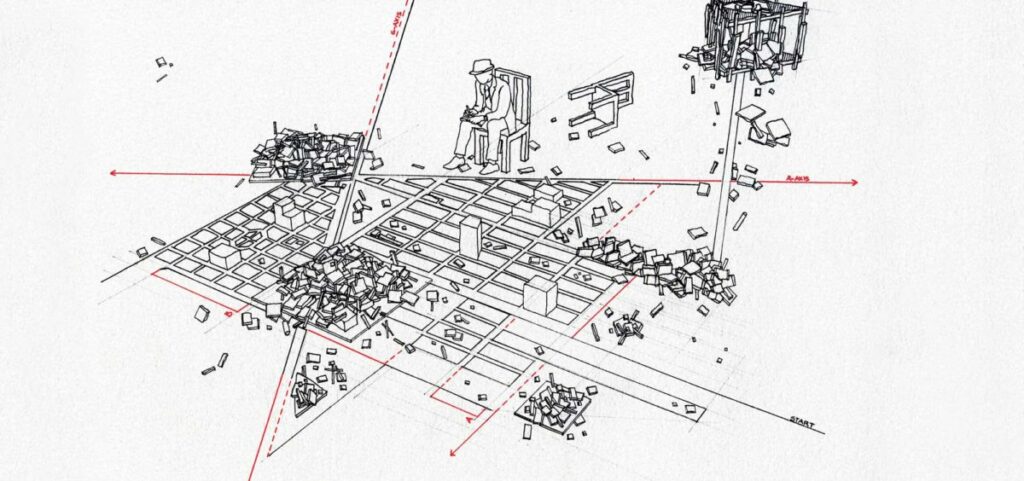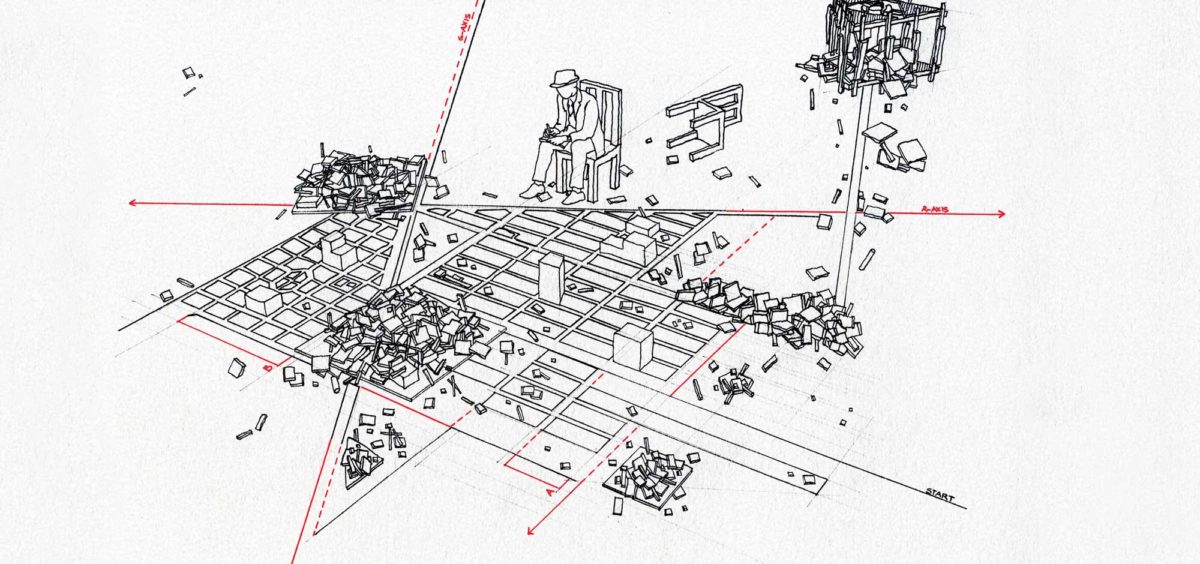Disclosure: (I’m biased against open floor plans)
hbr.org/2019/11/the-truth-about-open-offices
Many companies say they are going open-office to boost collaboration — but it’s actually for budgetary reasons. If that’s your company, be honest about it.

Stop
amazon.com/exec/obidos/ASIN/0932633439
Doing
npr.org/2016/05/27/479696596/planet-money-tracks-down-the-inventor-of-the-open-office
VANEK SMITH: Auslander says the constant movement and the bright plastic floor made it impossible to work.
AUSLANDER: Like, if you could climb inside a migraine headache, that’s what that felt like.
VANEK SMITH: Did you have, like, coping mechanisms?
AUSLANDER: Yeah, it was called my house.
VANEK SMITH: The Italian designer Gaetano Pesce, said, yeah, he heard this, that people had trouble working in this new office.
…
VANEK SMITH: Pesce’s virtual office had a short life. A few years after it was completed, Chiat-Day moved to a more traditional space. Warren Berger, the design critic, visited just before the move.
BERGER: They’d already, you know, started the process of shutting it down and moving out. So it was a failed experiment clearly by that point.
VANEK SMITH: Still, says Berger, the office had a big impact. Companies like Google and Apple – and now basically everyone – adopted the ideas of couches and cafe spaces and mobile desks. And Pesce says he still sees pieces of his office when he travels. He saw one of the rolling desks in Milan, a plastic chair in Paris, a piece of the wall in Aspen.
PESCE: The office was exploded around the world.
This
Please
Thank
You
.
hbs.edu/news/articles/Pages/bernstein-open-offices.aspx
newyorker.com/business/currency/the-open-office-trap
inc.com/geoffrey-james/science-just-proved-that-open-plan-offices-destroy-productivity.html
Penny wise, but pound foolish
After software, the most important tool to a hacker is probably his office. Big companies think the function of office space is to express rank. But hackers use their offices for more than that: they use their office as a place to think in. And if you’re a technology company, their thoughts are your product. So making hackers work in a noisy, distracting environment is like having a paint factory where the air is full of soot.
Companies like Cisco are proud that everyone there has a cubicle, even the CEO. But they’re not so advanced as they think; obviously they still view office space as a badge of rank. Note too that Cisco is famous for doing very little product development in house. They get new technology by buying the startups that created it– where presumably the hackers did have somewhere quiet to work.
This could explain the disconnect over cubicles. Maybe the people in charge of facilities, not having any concentration to shatter, have no idea that working in a cubicle feels to a hacker like having one’s brain in a blender. (Whereas Bill, if the rumors of autism are true, knows all too well.)
One big company that understands what hackers need is Microsoft. I once saw a recruiting ad for Microsoft with a big picture of a door. Work for us, the premise was, and we’ll give you a place to work where you can actually get work done.
And you know, Microsoft is remarkable among big companies in that they are able to develop software in house. Not well, perhaps, but well enough.
I’ve even heard programmers say things like,
“Yeah, we all work in cubicles, but everyone works in a cubicle—up to and including the CEO!”
“The CEO? Does the CEO really work in a cubicle?”
“Well, he has a cubicle, but actually now that you mention it there’s this one conference room that he goes to for all his important meetings…”
Mmmm hmmm. A fairly common Silicon Valley phenomenon is the CEO who makes a big show of working from a cubicle just like the hoi polloi, although somehow there’s this one conference room that he tends to make his own (“Only when there’s something private to be discussed,” he’ll claim, but half the time when you walk by that conference room there’s your CEO, all by himself, talking on the phone to his golf buddy, with his Cole Haans up on the conference table).
![]()

